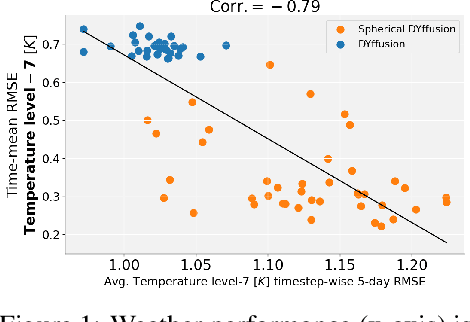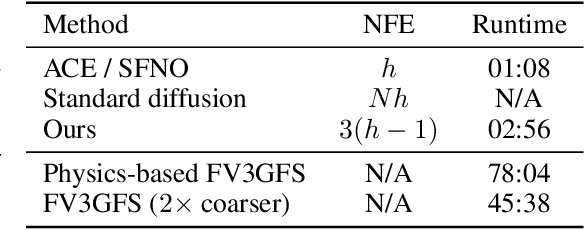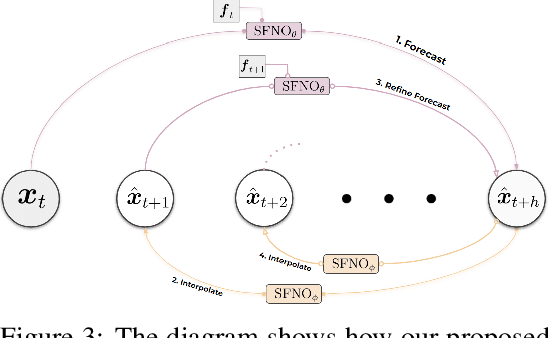Probabilistic Emulation of a Global Climate Model with Spherical DYffusion
Paper and Code
Jun 21, 2024



Data-driven deep learning models are on the verge of transforming global weather forecasting. It is an open question if this success can extend to climate modeling, where long inference rollouts and data complexity pose significant challenges. Here, we present the first conditional generative model able to produce global climate ensemble simulations that are accurate and physically consistent. Our model runs at 6-hourly time steps and is shown to be stable for 10-year-long simulations. Our approach beats relevant baselines and nearly reaches a gold standard for successful climate model emulation. We discuss the key design choices behind our dynamics-informed diffusion model-based approach which enables this significant step towards efficient, data-driven climate simulations that can help us better understand the Earth and adapt to a changing climate.
 Add to Chrome
Add to Chrome Add to Firefox
Add to Firefox Add to Edge
Add to Edge